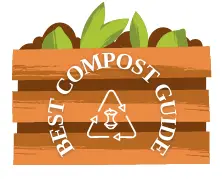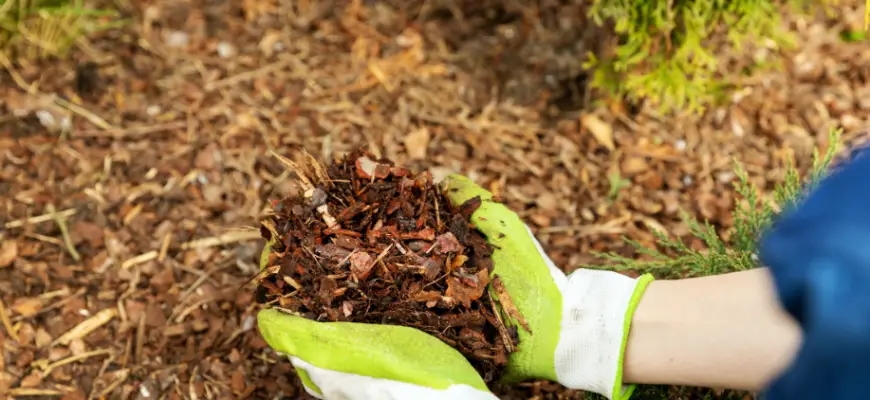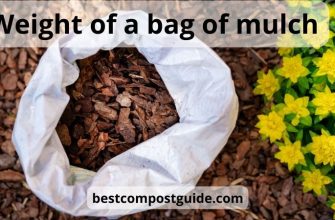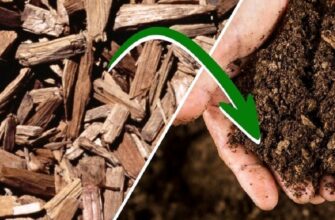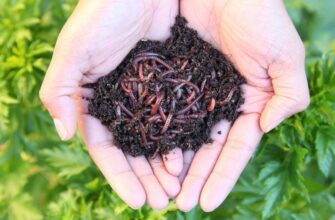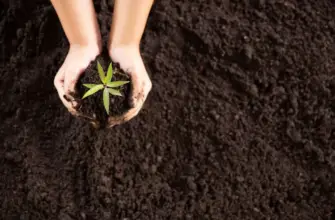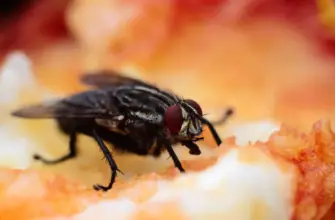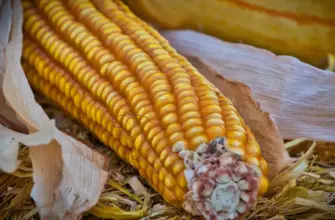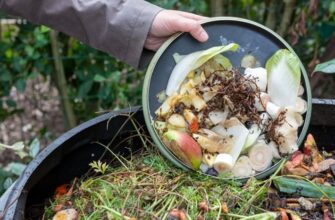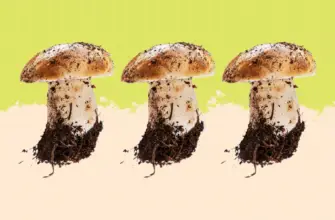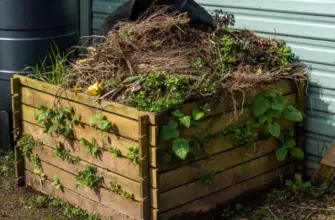The composting process is exactly what you need for the ecological benefit of your organic waste, but making compost involves unpleasant smell, harmful emissions, and angry neighbors. So, how to solve these contradictory issues?
Composting process is an excellent garden practice with several environmental benefits. Composting consumes time and energy, something a novice composter might lack. A composting method is problematic due to its smell, pests, and insects that are usually present if your compost bin is not clean enough without proper air circulation.
Composting at home will reduce your organic household waste such as food scraps, needless dry plants, and other organic materials. Composting indeed has multiple benefits, but there are also reasons to avoid it.
This article outlines the most common disadvantages of composting and shows how to benefit from it.
- What is composting?
- Advantages of composting
- Improvements in soil quality
- Landfills waste reducing
- Decreasing methane emissions
- Conserving water
- Protecting plant health
- Why is composting good for the environment?
- Disadvantages of composting
- Smell
- How to prevent bad smell
- Lots of space and time are required
- Rats, snakes, and bugs might get attracted to wastes
- Landscape mess
- Not satisfied neighbors
- Composting at home
- How to select the best composter?
- Quench your compost’s thirst
- Keep your compost pile breathing
- The best way to avoid smell?
- Is it worth owning a composter, or should you get rid of the idea?
- Avoiding the negatives of composting at home
- Frequently asked questions
- How is composting bad for the environment?
- What is composting, and what are its advantages and disadvantages?
- Can composting be harmful?
- Conclusion
What is composting?
Composting is a decomposition process of organic material. Compost consists of yard waste, kitchen waste, and plant waste and is used to rich soil structure and to improve the organic matter of the garden.
Composting process is considered as eco-friendly as thanks to it huge piles of garbage are reused and can be beneficial not only for the owner.
Every day we consume meals, leave food waste at landfills and throw it away without having an idea of recycling to receive environmental benefits. Meanwhile, compost piles may contain even animal sources and plants, keeping carbon and nitrogen buried inside to protect human health.
Composting is a kind of magical process that gives you an opportunity to recycle organic food waste into organic fertilizer that can be used as a soil conditioner and a way to produce much less waste.
Do not forget about paying for collecting your food scraps on regular basics and other benefits.

Advantages of composting
Composting is one of the most essential solutions to global warming by Project Drawdown written to prevent a climate disaster.
Start composting requires special knowledge in getting the most benefits from organic waste products and keeping the piles in a proper condition not to attract rats, pests, and unpleasant smell in your garden.
Improvements in soil quality
The most common advantage of a compost pile is that compost improves soil quality without any doubt.
The composting process creates vital nutrients for the plants, such as phosphorous and potassium. Compost is much better than chemical fertilizers used by farmers in the garden.
Finished compost is mixed with other soil components to decrease the number of nutrients, which are used for improving plants growth.
Moreover, if you have your own garden, composting serves you the best to improve the conditions of the plants and to shorten organic waste at the same time.
Landfills waste reducing
Garden matters with food scraps occupy about 28% of the total household waste thrown away.
So, to start composting process you can divert up to 600 pounds of house waste from landfills, and by reducing garbage you can improve soil structure without any costs by producing a free fertilizer.
Decreasing methane emissions
City garbage piles carry a huge danger to people, creating harmful greenhouse gases such as methane gas and CO2. This leads to global warming, and composting organic waste products can be beneficial for humanity.
Conserving water
Organic matter influences soil quality and ability to absorb and keep water, which leads to further decreasing watering requirements while harvesting.
In the U.S., the agriculture industry saves up to 80% of the country’s water usage thanks to composting. Besides, the fertilizer, made of compost, serves as a soil conditioner.
Protecting plant health
Composting nutrient-rich soil is also used for protecting plants’ health. Organic material is used for fertilizing that definitely improves the health of the planet.
Why is composting good for the environment?
It was already mentioned before that compost absorbs and keeps a large amount of water, helping to prevent soil destruction, decrease runoff, and stimulates natural vegetation. Besides this, composting keeps pollutants such as emission gases, nitrogen, phosphorus, fuel, and herbicides inside trapping heat in the atmosphere.
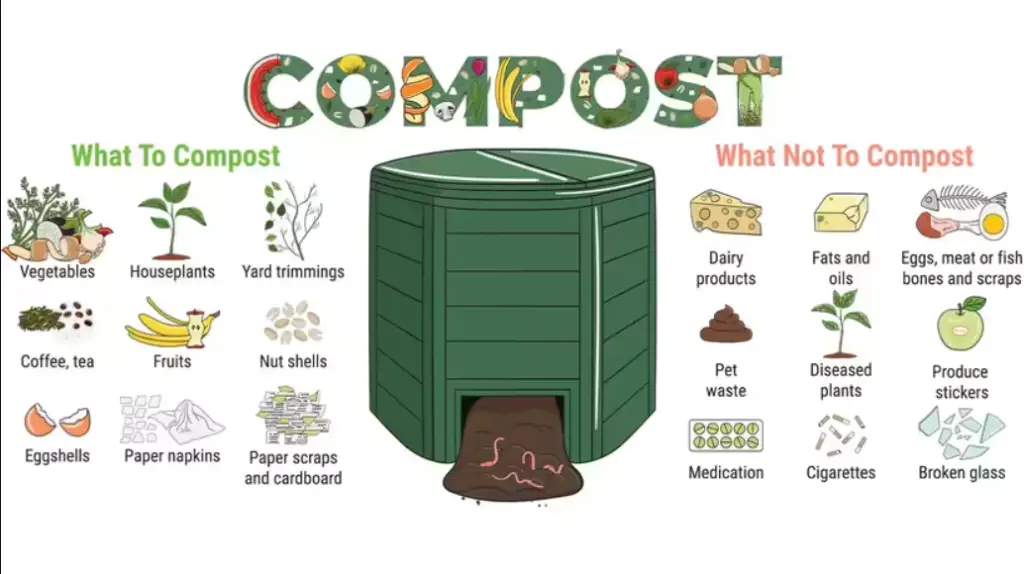
Disadvantages of composting
Composting is an ecologically beneficial process. All the advantages cannot be underestimated. Adding this to our daily life will be a big impact and a collective force to make our lives better. Meanwhile, making compost at home creates definite difficulties.
Composting doesn’t come easy; the task takes some time but it’s worth it to learn how to benefit from composting.
The most common disadvantages are time and space required, smell, and rodents that annoy neighbors. Besides this, some people leaving in large flats cannot provide enough organic food waste for their composting bin. So, producing compost is not as easy as it seems from the beginning. That is why some people are still against composting at home.
Smell
Probably is one of the most annoying disadvantages of collecting waste to compost at home. Composting is like a chemical and a biological study full of life in an incredible multilevel jungle of living creatures. Using compost can actually kill millions of organisms.
The odor is inevitable. Our noses are highly sensitive, and we don’t have to blame others for it. The nose smells like tiny molecules. It simplifies and worsens our lives in some way, giving pleasure and disgust.
In composting processes, different scents are created according to the nature of organic waste. The smell is uncomfortable and reduces the overall health of individuals living in these areas. You may prefer to avoid using some food products that generate noxious gases to compost. It is a better alternative to plant waste because of its smell.

How to prevent bad smell
One of the options is to keep your compost pile breathing. For this purpose, you should move your compost a few times a week to ensure proper air circulation.
For instance, if you throw dry garbage such as paper, leaves, or cardboard, the air circulates inside. But if fresh flowers or something wet gets into the compost bin, all the waste is tamping and without air circulation, the bacteria won’t work.
So, to overcome this issue, you may use a shovel to grab your waste once a week or use a compost tumbler to do the work for you.
Another way is to add some bulking materials to a composting bin to prevent space constraints and allow the oxygen-loving life creatures to consume the smell in your bin.

Lots of space and time are required
Composting is an operation that requires enough space, so may not meet all needs, particularly for those who have limited space, especially living in flats.
To conduct composting, it is best if you live in a home with sufficient space around it, and maybe even a large flat with a balcony.
Obviously, composting influences your daily life. Getting through this procedure is difficult. Rubbish doesn’t need to be fully decomposed into high-quality compost to be a further used fertilizer.
The action of re-composing takes a long period anywhere from 1-3 months depending on the types of input materials used from your garden.
In addition, specialized physical tasks may be required depending on the volume of waste.
Rats, snakes, and bugs might get attracted to wastes
Composting organic waste is rather dirty. It’s another disadvantage of composting. Composting is usually an effective technique that attracts pests and other animals, that are dangerous to human health, including snakes. Make sure you are VERY careful when storing the manure containers so as not to attract rats or other rodents.
Beginners often struggle with issues of how not to attract pests or other organic matter, scaring neighbors. There are some easy actions to avoid unwanted animals from your bin.
Primarily, always pay attention to the organic food waste in your garbage. Never put meat, dairy products, or fats in it. Some products such as eggshells or avocado peel take a longer time to decompose. You’d better avoid these products from your composting bin and throw them away.
Landscape mess
This disadvantage seems annoying when you have a huge pile in a small yard. It looks like a mess or an uncleaned garden.
To avoid this drawback, we suggest you find a place hidden from your eyes. It may be an area between two household buildings, or maybe a pit.
You can also cover your composting pile with a rain-resistant blanket.
Not satisfied neighbors
Well, definitely your next-yard neighbors would not be satisfied with the new pleasantly smelling pile of chemical fertilizers that will seem like a garbage heap.
Moreover, your neighbors can be familiar with all the disadvantages of composting and be totally against the possible smell, and messy view.
In some cities, it is forbidden to use a regular compost system as it may influence the overall quality of people living in that area.
Anyway, it should be a profound decision to create a composting soil fertilizer and not attract bugs to your home.

Composting at home
Composting is an effective way to recycle organic waste and save money. A compost pile is easy to make and clean without harmful effects on our environment. If you buy the composter, make sure it is big enough to handle whatever you want to compost to determine if you’re needing it.
Definitely, composting requires time, enough space, physical work, and other equipment to begin a process. But is it worth it? A compost bin may be extremely useful in your home composting process excluding the possible disadvantages, such as unpleasant gases, bugs, rats, and other vermin.
A compost bin may be of three different types: enclosed, vertical, and open-topped that is the most popular due to its mesh bottom allowing air circulates through it.
As soon as you choose the compost bin for your home, add some mixed soil with any organic materials in it such as grass clippings, leaves, or food waste. Composting efficiency depends on the fillings of your pin. Do not forget to not put meat or other raw animal products, not to attract rats or other insects.
How to select the best composter?
The decision to use composting machines has several aspects to be taken into consideration. It depends on the size of the compost and the amount of garbage it can keep.
The smallest composters are best living in an apartment. There are 2 sizes, one for a house and one for small spaces such as porches and decks for compact composting machines. Without gardening, sometimes it takes time to collect enough organic food matter to fulfill the bin.
Alternatively, a larger composting system would probably be a better option. Food waste systems are typically more convenient for outside spaces with more organic garbage.
Composting can be done quickly and easily. Nutrient-rich soil and organic fertilizer are made of the correct compost matter, airflow, and moisture to supplement organic organisms.
Useful compost requirements might be available within some time, depending on want final product you need from your material.

Quench your compost’s thirst
Without proper moisture, the composting procedure will not be successful, and the soil cannot receive a good organic fertilizer. You have the choice of having as much moisture as you like.
In some places, you can add water by using your water hose. However, our experience indicates that you will get plenty of water from rain as well as from fruits. The water in your food is very much trapped in the pile.
Once the compost is broken down, the plant cells can break up and add moisture to the compost heaps. You might find that too much humidity is better than not enough.
Keep your compost pile breathing
It requires good ventilation to produce compost of good quality. If you dump large pieces of cardboard in your trash without cutting up your waste, they may cause airflow problems. When the storm comes, soaked papers are bound to soak in the dirt, soak up the composting piles, and choke it.
Be sure you provide oxygen for the microorganisms to live. Air circulation is easy. Get a shovel and move it once a week. Or, use your compost tumbler regularly.

The best way to avoid smell?
When compost is kept balanced, it provides a good odor and less unpleasant odor compared with one of the wrong-kept conditions. That is why composting bins serve the best.
They include any vegetation that you add day after day. But there are carbon-rich materials in surprising locations. To keep oxygen-loving microorganisms alive, throw the bamboo toothbrush in an empty garbage bag. You can also cut it up by splitting it down into small pieces.
Is it worth owning a composter, or should you get rid of the idea?
Many advantages of composting systems can be achieved. The process uses wastes from organic farming as a fertilizer. It’s suitable for gardening or as part of soil preparation for planting. It helps to strengthen soil structure as it holds more nutrients in the roots of plants.
Compost reduces reliance on pesticides and fertilizers because compost consists of a lot of vital nutrients such as nitrogen, potassium, and phosphorus.
It also reduces the emissions of animal manure by locking in the organic waste, which otherwise would be degraded.
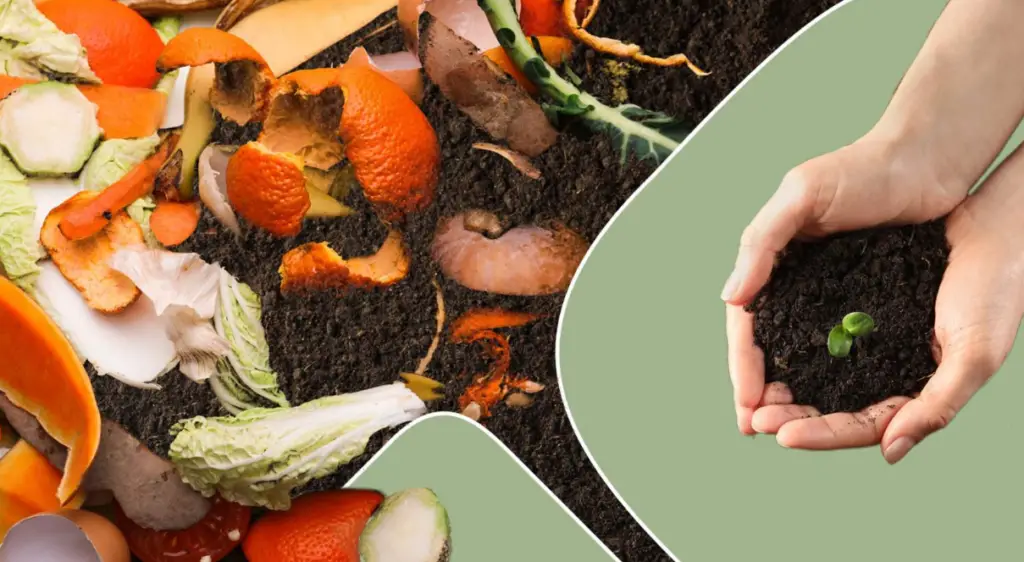
Avoiding the negatives of composting at home
Composting provides many advantages to the garden. Compost bin reduces waste from the environment and reduces the need for landfill. Natural processes convert waste into fertilizer.
Composting can be very efficient at recycling food waste, yard waste, yard clippings, and other wastes that are not recycled in landfill and reduce the waste sent to contaminated incineration facilities. Composting nourishes your plants, preventing you from buying fertilizers and helping to reduce landfills. The proper process brings your joy in helping nature.

Frequently asked questions
How is composting bad for the environment?
When the compost pile gets anaerobic, it has more dangerous effects than the smell of waste. If a compost pile lacks oxygen, this emits toxic methane that causes pollution. There’s a good reason landfill of food scraps is dangerous for our environment and can serve as a soil conditioner.
What is composting, and what are its advantages and disadvantages?
Compost provides the soil with nutrients that can remain there to feed the plants for long periods. You may keep all organic waste in it, paying less for bringing it to landfills, producing fertilizers for your future needs, and also helping global warming effects due to emissions.
The addition of fertilizers in soils also prevents fertilization from escaping into groundwater. This improves soil porosity: microbes help to increase soil fertility.
Can composting be harmful?
Many people know about composting, but only a few people actually realize the dangers this method poses to the environment.
Compost is also the breeding ground for harmful pathogens that can kill untrained gardeners and even a few others.
Conclusion
We outlined the most disadvantages of composting and the tips on how to avoid rodents, smell, and other annoying issues.
Doubtless, that compost brings more benefits to a person, a country, and the whole planet. It is your choice to keep composting or not, but we are sure it can be beneficial to everybody.
Read also: How to store potting soil indoors, in a protective container and big thin plastic bags?
